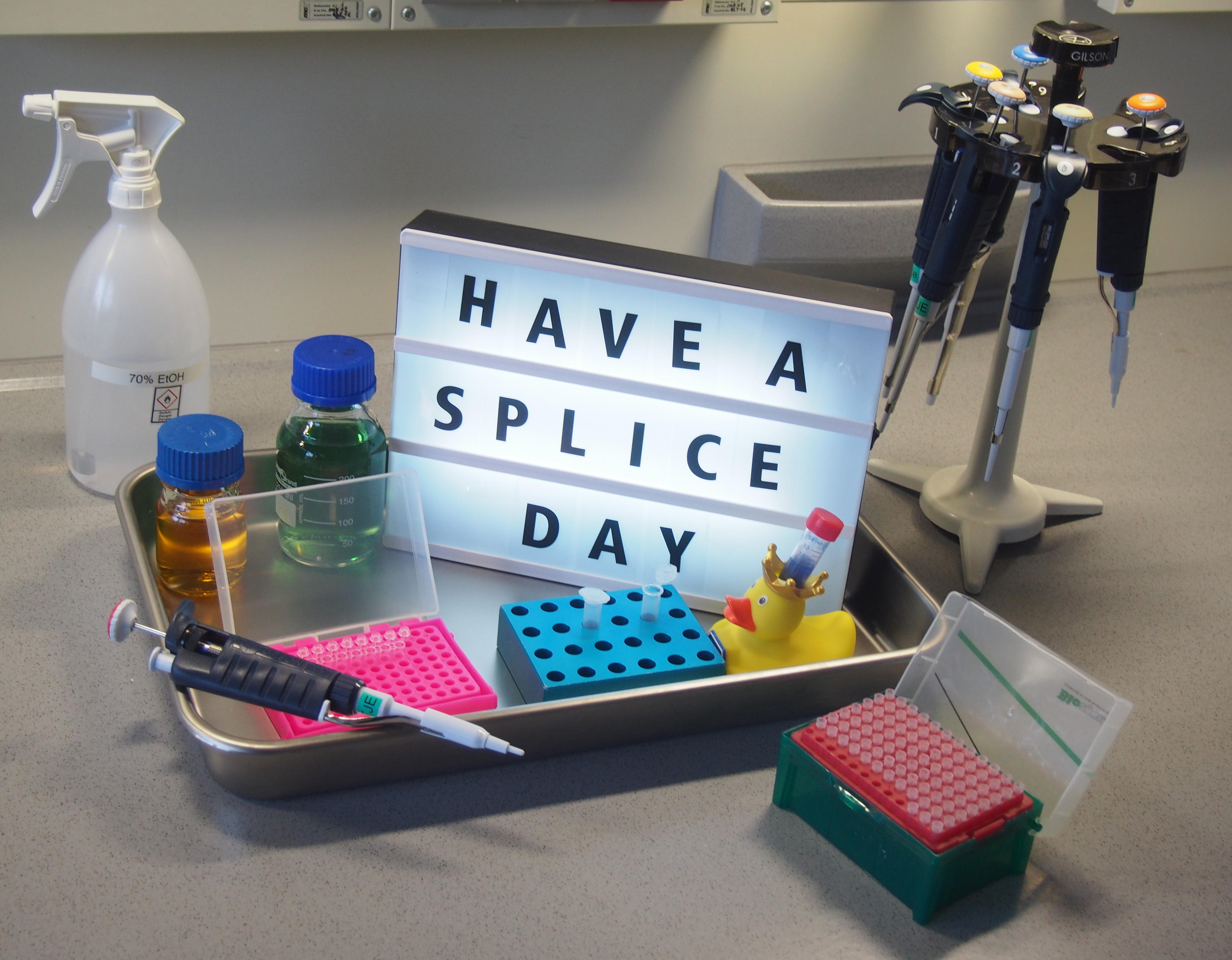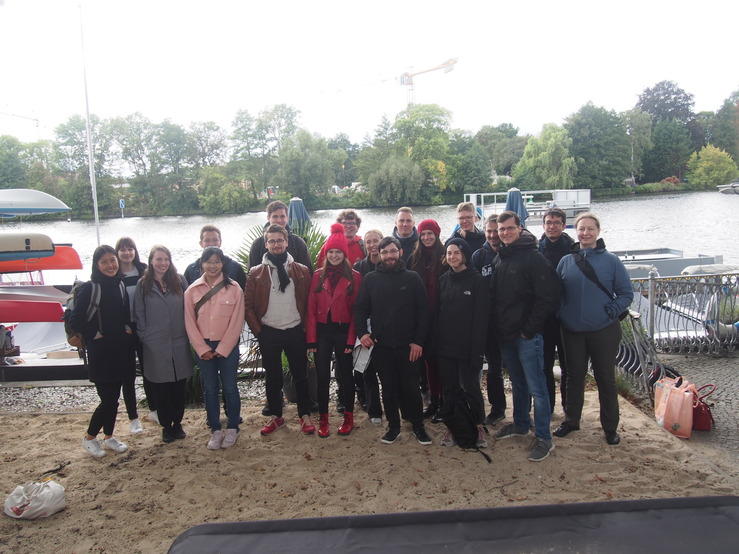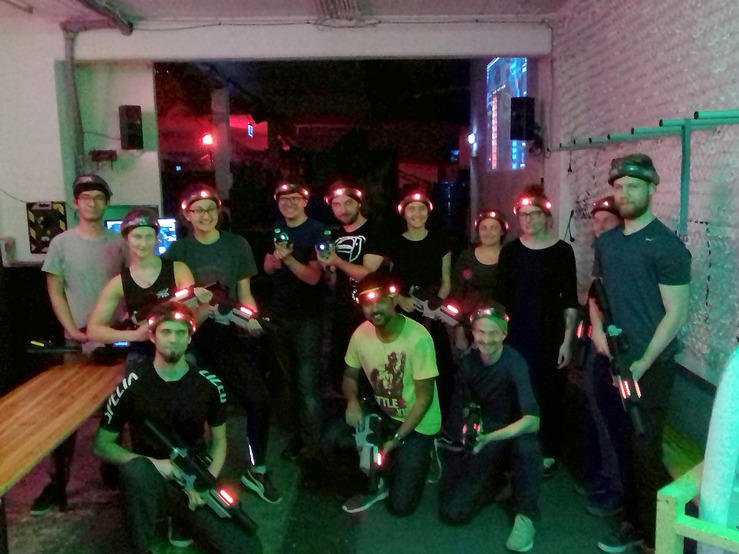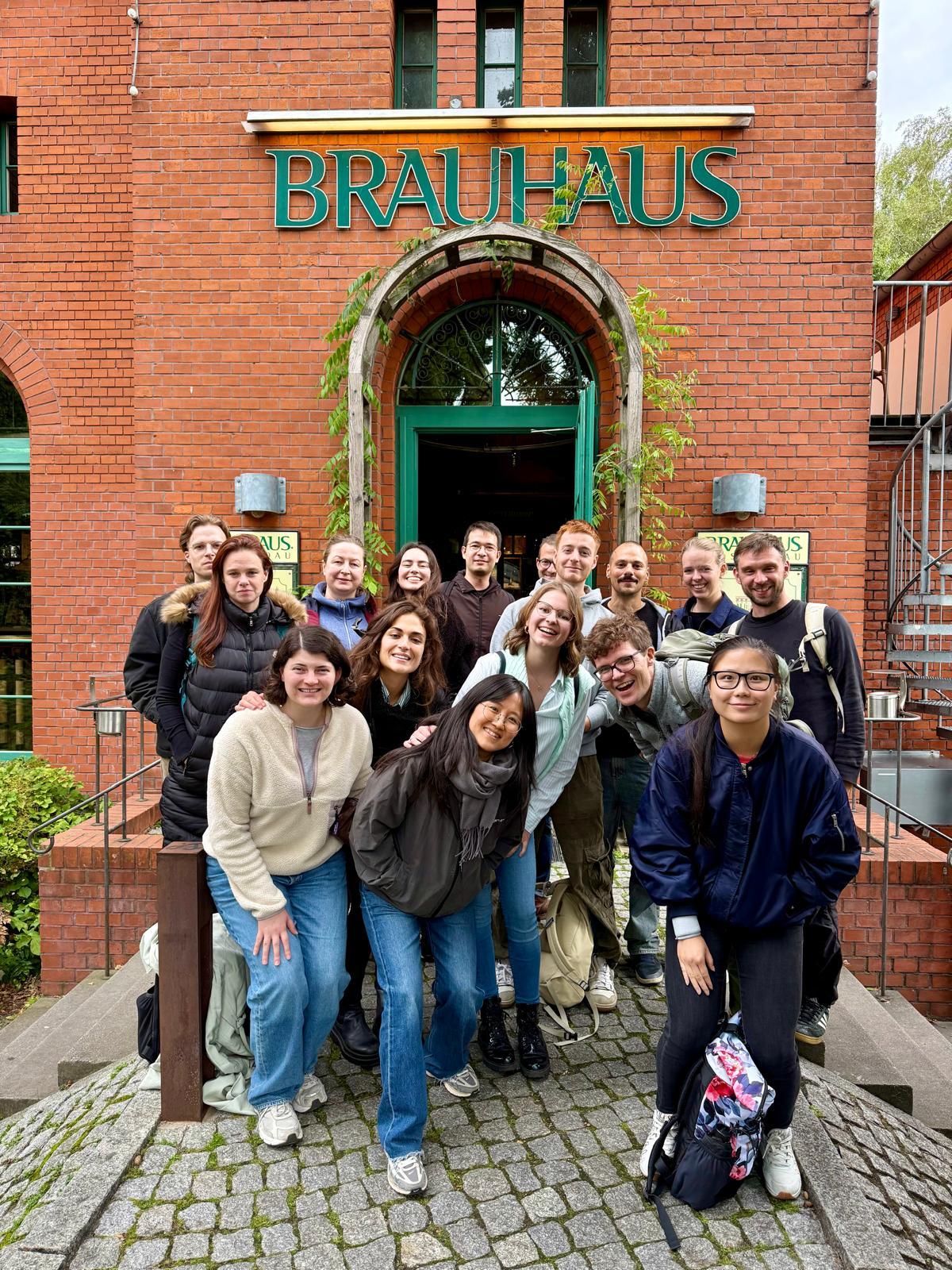Heyd Group - RNA Biochemistry
In our work we address the fundamental question how alternative splicing regulates cellular function and identity. Our main model systems are body temperature-controlled alternative splicing, e.g. in a circadian setting or during fever, and immune cell activation. In addition to splicing functionality, we investigate mechanisms behind signal-induced and temperature-controlled alternative splicing, with a focus on the CLK family of kinases, as their activity reacts extremely sensitive to changes in the physiologically relevant temperature range. In another mechanistic project focused on the core spliceosome we have recently started to investigate NAGNAG alternative splicing.
Our discovery that alternative splicing coupled to nonsense-mediated decay (AS-NMD) has a fundamental impact on body temperature-controlled gene expression led to our interest in using ASOs to modulate AS-NMD and gene expression in translational projects. We are for example investigating ASOs to increase the expression of the broadly neuroprotective cold-induced protein RBM3 at normothermia. See here for a newspaper article (in German) describing the potential impact of our work in developing a new therapeutic concept for age-related dementias: Tagesspiegel_Kälte_und_Gehirn. This work was also prominently featured in an article in Der Spiegel (15/2023), which highlights the broad interest in our work.
We employ a variety of techniques ranging from bioinformatics to RNA-protein interaction assays, in vitro splicing, minigenes, cell culture and mouse models.
See here for a newspaper article describing our work connecting body temperature with viral infections (in German): Tagesspiegel_Viren_und_Koerpertemperatur

Room 127
14195 Berlin
Please Email or call Florian Heyd or Karin Hesse to make an appointment.



